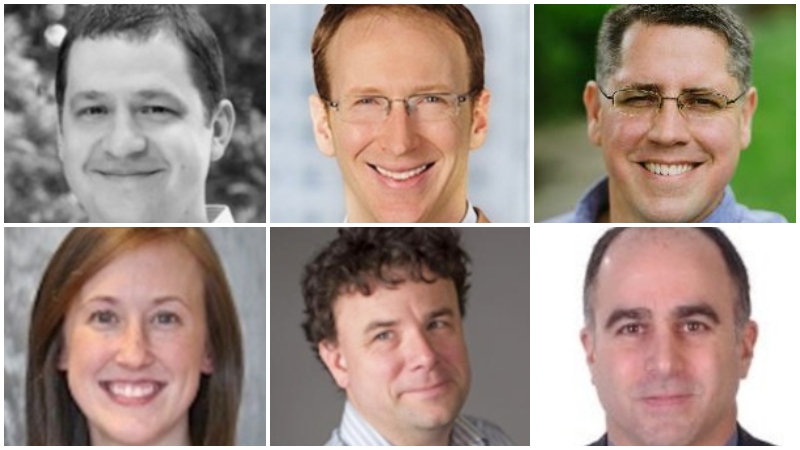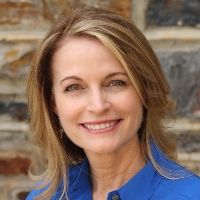The 2019-20 Entrepreneur’s Workshop Series
Duke Engineering and MEDx offer free weekend workshops for Duke faculty, staff and students

Graduate school prepared him extremely well for tackling big research problems and designing inventive solutions for them, said biomedical engineer Tarun Saxena. But the topic of determining the needs of the end-users was never on the curriculum.
“We want to get our technical innovations out into the world,” said Saxena, a pilot program manager at the Duke Clinical & Translational Science Institute (CTSI) who earned his PhD from Syracuse University in 2010. “Assessing customer needs is critical, but how to solve those problems never came up in grad school.”
 But now, in each Duke CTSI project plan he makes with a faculty entrepreneur, he includes a step for capturing customer needs.
But now, in each Duke CTSI project plan he makes with a faculty entrepreneur, he includes a step for capturing customer needs.
He learned how to do that–and gained additional entrepreneurial confidence–from attending a free session of the Duke Entrepreneur’s Workshop Series.
Sponsored by MEDx (Medicine & Engineering at Duke) and the Pratt School of Engineering, the series, now in its third year, is offered each fall and early spring and open to any interested Duke faculty, staff member or student.
“Entrepreneurship has been a MEDx pillar since the inception of the program, and is a natural fit with our other objectives—promoting community, education, and research at the interface of engineering and medicine,” said Donna Crenshaw, executive director of MEDx.
Each intensive, four-hour Saturday session is facilitated by a successful entrepreneur or an industry expert. Participants come away with actionable knowledge they can apply to their entrepreneurial projects.
For Saxena, his most valuable takeaway from the 2019 series was a template for customer-needs assessment. In just one example, he applied the template to a project with Jon Viventi, a BME faculty member working on flexible electronic implants for brain stimulation.
In fiscal 2019, Duke Engineering faculty innovators filed 86 invention disclosures, made 12 new license agreements, created four business start-ups and received 23 patents
“The seminar leader suggested we talk to key opinion leaders, people who could influence the use of our product. We were working on medical devices, so it was clear who we had to talk to: neurosurgeons,” Saxena said. “As we made progress on the technical side, we interviewed neurosurgeons using a structured template.”
From those interviews, he and Viventi gained important feedback. For example, ergonomics was important to surgeons.
“They looked at it not only in terms of clinical performance but also at how easily the device could be implanted,” Saxena said. “They told us the electrical leads should go in their preferred position, for example. They confirmed that material flexibility would be a key characteristic.”
The workshop series is an outgrowth of efforts to strengthen entrepreneurial ties across Duke— and of a broad commitment to providing advice, education, assistance and acceleration to the commercial endeavors of faculty, staff and students.
“Our collective goal is to get Duke Engineering innovations out into the world, where they can make a real impact—entrepreneurship is how we do that,” said Bill Walker, the Mattson Family Director of Entrepreneurship at Duke Engineering, a Duke BME graduate and a medical-device company founder.
Faculty entrepreneurship is a growing hallmark of Duke Engineering. In fiscal 2019, Duke Engineering innovators filed 86 invention disclosures, made 12 new license agreements, created four business start-ups and received 23 patents.

The series helps fill in gaps in entrepreneurial knowledge and highlights issues and hurdles that are often overlooked said workshop leader Gregory J. Carlin, an Atlanta-based intellectual property, or “IP,” attorney who holds a master’s degree in biomedical engineering from the University of Pittsburgh.
“People in an academic environment have become more attuned to the commercial value of their work and their own possible ownership interests,” he said. “But, it isn’t always clear to them which forms of IP exist in their creations or how to go about protecting that IP.”
A Saturday workshop, he said, can’t provide all the information on the complex subject of IP, “but it can sensitize people to the types of IP protection available for their creations, how to search for existing competitor IP, how to avoid infringement of competitor IP and how to work with professionals through the more challenging of these issues in a cost-effective way.”
The series continues in 2020 with workshops scheduled for Jan. 11, Feb. 8 and Feb. 29. Each workshop is free and includes lunch.
Learn more
Details and registration at: medx.duke.edu/entrepreneurship/workshop
